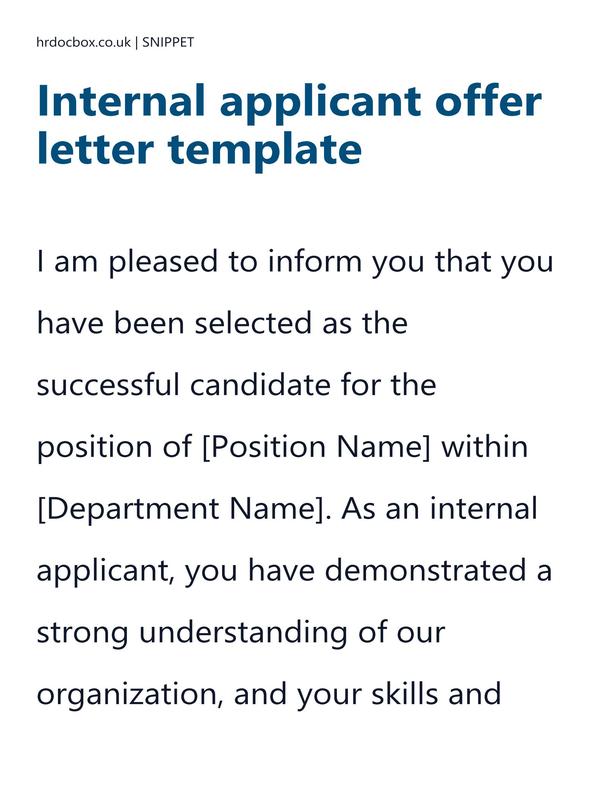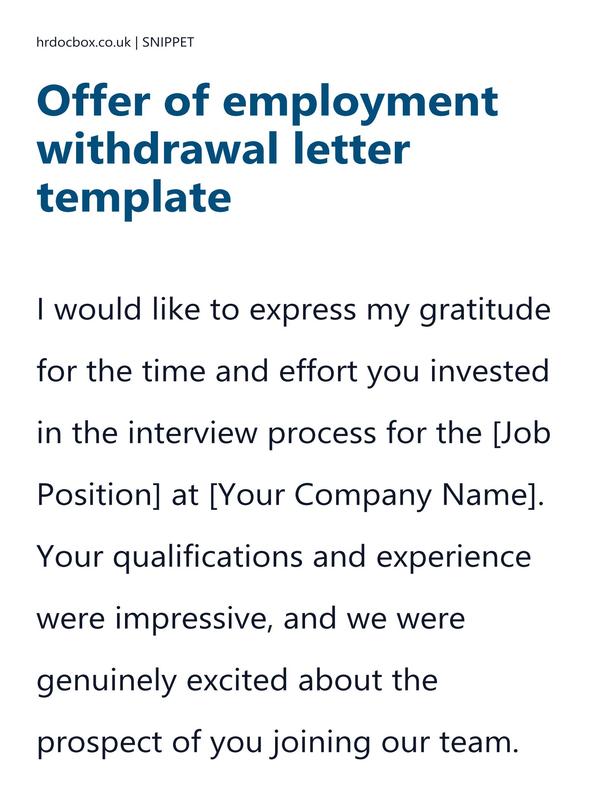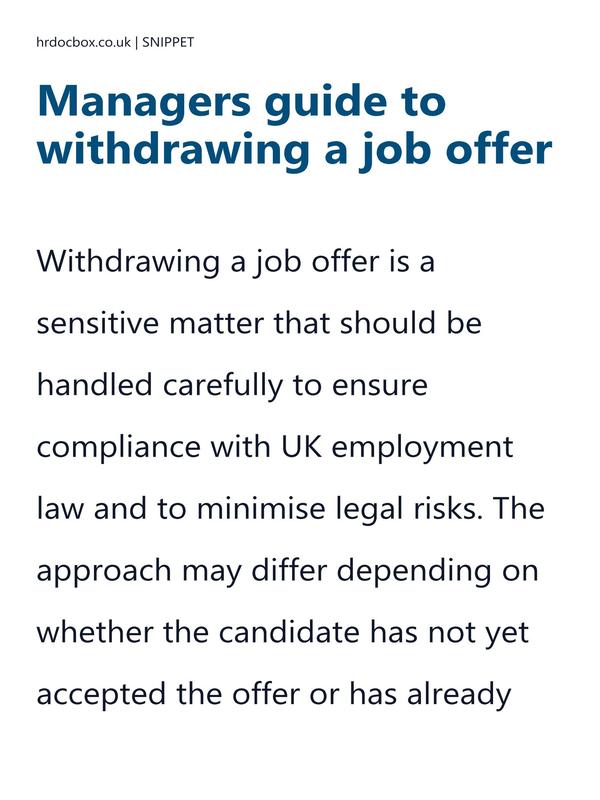Job offer templates toolkit
If you want to offer a job to a suitable applicant, these model templates will help you to complete this and other pre-employment tasks legally and effectively.
Our Job Offer Templates Toolkit streamlines the job offer process, ensuring accurate and professional offers to successful candidates.
- Includes 12 months' access to 13 Job Offer templates, with all updates to the Job offer templates toolkit provided free of charge and notified to you.
- UK-specific accuracy.
- Instantly download templates as Word / PDF / plain text, or send by email.
- These Job offer templates toolkit will SAVE you up to 9 hours drafting & research, save you money, and reduce your risk.
Job offer
A job offer is a formal communication from an employer to a prospective employee, extending an invitation to join the organisation in a specific role. It outlines the terms and conditions of employment, including details such as the job title, salary or compensation package, benefits, start date, and any other relevant information related to the position.
Typically, a job offer is made after a candidate has successfully completed the recruitment process, which may involve submitting a job application, participating in interviews, and undergoing any necessary assessments or background checks. Once the employer has selected the preferred candidate, they extend a job offer to formally extend employment.
A job offer letter or email typically includes the following components:
-
Job Title and Description: Clearly specifies the position the candidate is being offered and outlines the key responsibilities and duties associated with the role.
-
Salary and Compensation: Details the salary, wages, or hourly rate offered to the candidate, along with any additional compensation such as bonuses, commissions, or stock options.
-
Benefits Package: Outlines the benefits the candidate is eligible for as an employee of the organisation, which may include health insurance, retirement plans, vacation time, and other perks.
-
Start Date: Specifies the date when the candidate is expected to begin employment with the company.
-
Conditions of Employment: Includes any specific conditions or contingencies that must be met before the offer can be finalised, such as passing a background check or providing proof of eligibility to work.
-
Contact Information: Provides contact details for the employer or hiring manager in case the candidate has questions or needs clarification about the offer.
Once a job offer has been extended, the candidate typically has the opportunity to review the terms and conditions before making a decision to accept or decline the offer. If the candidate accepts the offer, they may be required to sign and return the offer letter or confirm their acceptance in writing.
Job offer templates are essential for managing a low-risk, compliant Job offer process.
Compliance
Compliance
-
Job offers should be given in writing to avoid any confusion regarding the terms and conditions.
-
When discussing the position with the candidate, care must be taken not to suggest terms that are inconsistent with or deviate from the written offer (verbal terms can be binding and equate to contractual promises).
-
Where the company wants to verify facts about the employee before confirming employment, conditional offers should be given.
-
Any checks to verify information must be open and conducted with the employee's approval.
-
When an employer makes a clear conditional offer and the condition is not satisfied, the employer is typically allowed to withdraw the offer.
-
Employers must not discriminate in the terms and conditions they give to their employees.
Key Job Offer Case Law
Key Job Offer Case Law
Navigating Job offer processes correctly is crucial to help you avoid any problems (which can be costly in terms of time, money and reputation).
Recent UK case law has highlighted key aspects of good Job offer management. Knowing how courts have handled claims can help you assess whether your proposed actions are likely to be seen as reasonable.
Here are some notable rulings and their implications:
-
McCann v. Snozone Ltd (2018):
Facts: Mr. McCann received a job offer from Snozone Ltd, which was subsequently withdrawn. He had resigned from his previous job in reliance on the new job offer and claimed damages for breach of contract. The Employment Tribunal found in favour of Mr. McCann, ruling that the withdrawal of the job offer constituted a breach of contract.
Outcome: The tribunal awarded damages for the financial loss incurred due to his reliance on the offer and the subsequent resignation from his previous job.
Key takeaway: This case highlights the importance of employers honouring job offers or providing adequate notice if circumstances change.
-
Cundall v. Ministry of Defence (2019):
Facts: Ms. Cundall was offered a position with the Ministry of Defence (MoD), which was later retracted due to budgetary constraints. She claimed that the withdrawal was unfair and sought compensation for the loss of expected earnings.
Outcome: The Employment Tribunal ruled that the MoD was within its rights to withdraw the job offer due to the unforeseen budgetary issues. However, the tribunal also emphasized that employers should communicate such changes promptly and transparently to avoid potential claims.
Key takeaway: This case demonstrates that while employers can withdraw job offers, they must handle such situations with care and clear communication.
-
Casey v. Southampton City Council (2020):
Facts: Ms. Casey was given a conditional job offer by Southampton City Council, which required passing certain pre-employment checks. The offer was withdrawn after she failed to meet these conditions, and she argued that the withdrawal was unjust.
Outcome: The Employment Tribunal found in favour of the council, ruling that the conditional nature of the job offer was clearly communicated and that the withdrawal was justified based on the failure to meet the specified conditions.
Key takeaway: This case highlights the importance of transparency and clear communication regarding the conditional nature of job offers.
-
Gibson v. Aberdeenshire Council (2021):
Facts: Mr. Gibson received a job offer from Aberdeenshire Council, which was later withdrawn due to restructuring within the organization. He claimed that the withdrawal was unfair and sought compensation for the inconvenience and financial impact.
Outcome: The Employment Tribunal ruled in favour of Mr. Gibson, finding that the withdrawal of the job offer was handled poorly and without adequate notice. The tribunal awarded compensation for the financial loss and inconvenience suffered.
Key takeaway: This case underscores the importance of employers providing sufficient notice and reasons when withdrawing job offers.
-
Smith v. University of Oxford (2022):
Facts: Ms. Smith was offered a job at the University of Oxford, which was later retracted due to an administrative error. She argued that the retraction was unfair, particularly given her resignation from her previous position.
Outcome: The Employment Tribunal ruled in favour of Ms. Smith, awarding damages for the financial loss incurred due to the unfair withdrawal of the job offer. The tribunal emphasized the need for employers to ensure that job offers are firm and only issued when there is certainty about the candidate's employment.
-
Bainbridge v. NHS Trust (2023):
Facts: Mr. Bainbridge received a job offer from an NHS Trust, which was later withdrawn due to a re-evaluation of staffing needs. He claimed that the withdrawal was unfair, especially since he had already made significant life changes in preparation for the new role.
Outcome: The Employment Tribunal found in favour of Mr. Bainbridge, ruling that the NHS Trust had acted unfairly by withdrawing the job offer after he had relied on it to his detriment. The tribunal awarded compensation for the financial and personal impact of the withdrawal.
Key takeaway: This case reinforces the importance of employers considering the impact on candidates when withdrawing job offers and ensuring such decisions are made with due consideration.
Key takeaway: This case highlights the legal implications of withdrawing job offers without valid and justifiable reasons.
Instantly unlock with a purchase.
Instantly unlock with a purchase.
Job Offer workflow
Job Offer workflow
Here we show you which resources to use to effectively offer a job, taking into account the different decisions and directions that are likely / possible.
Following this flowchart will ensure that you factor in all eventualities, follow legal / code of conduct or best practice processes, communicate effectively, and reduce the risk of things going wrong.
Frequently Asked Questions about Job Offer templates
Frequently Asked Questions about Job Offer templates
-
Can small businesses use these Job offer templates?
Yes. The Job offer templates in this toolkit are designed to be flexible and suitable for organisations of all sizes, including small businesses and charities. They follow UK employment law best practice, so even if you don't have an in-house HR team, you can confidently manage Job offer processes and issues.
-
Are these Job offer templates up to date for UK law in 2026?
Absolutely. All templates are drafted with the latest ACAS guidance and UK employment legislation in mind. We review and update them regularly, so you can be confident they remain compliant.
-
What types of Job offer letters and documents are included?
Every toolkit includes a complete set of editable templates, supporting documents, and manager guidance designed to save time and ensure compliance.
-
How will this help me as an HR manager or business owner?
Purchasing the toolkit saves you hours of drafting time and reduces the risk of legal mistakes. Instead of starting from scratch, you'll have clear, professional templates that you can adapt to your business.
-
Do I get instant access to the templates?
Yes. Once purchased, you'll be able to download the Job offer toolkit instantly. The templates are provided in editable Word or Excel format so you can customise them easily, and PDF format for easy sharing.
-
Can I preview a sample Job offer template before buying?
We provide free examples of our templates here. This gives you a sense of the quality and layout before you commit to purchasing the full toolkit.
-
What if I need a full HR toolkit, not just Job offer templates?
If you're looking for broader support, we also offer library bundles that include Job offer templates along with absence, grievance, and other HR policies. These may be more cost-effective if you need a complete HR library.
-
Why should I use these templates, and not AI to generate them?
The risk of using free AI-generated templates 'without review' includes your legal exposure, missing context, and no awareness of the wider process. Purchasing from us mitigates that risk.


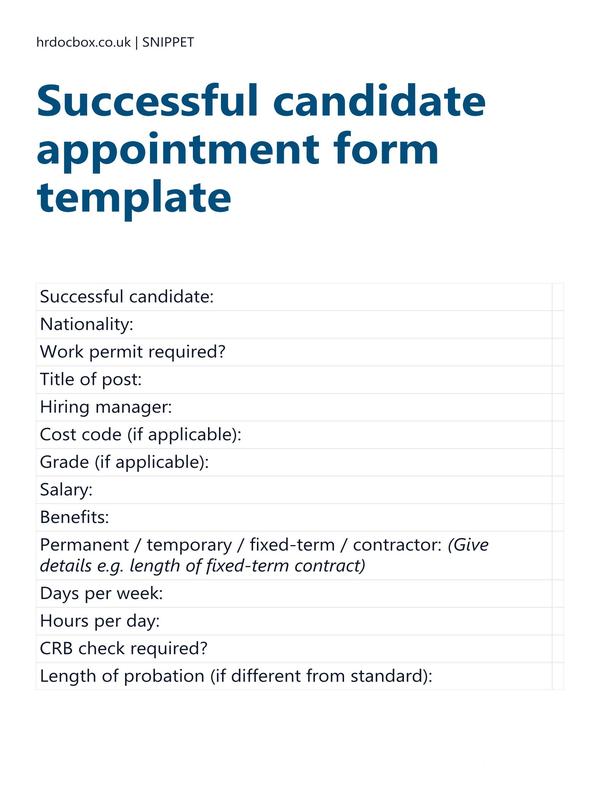
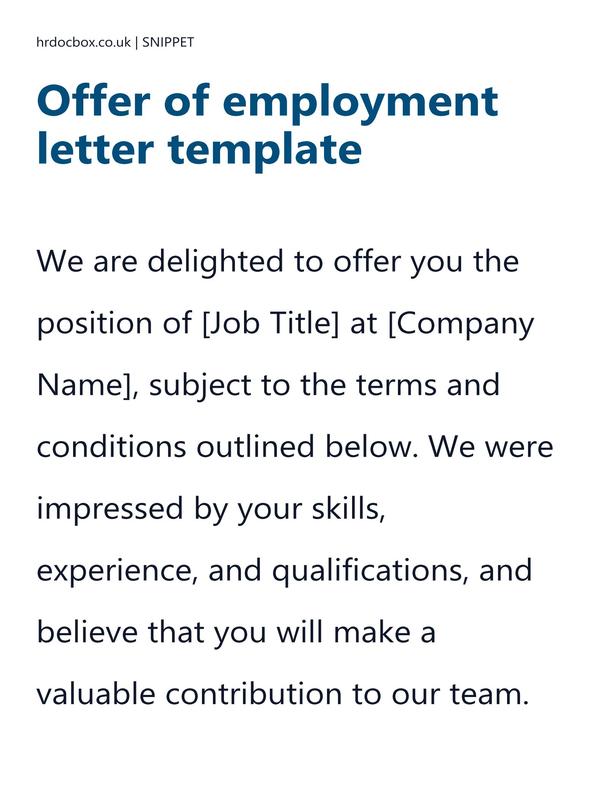
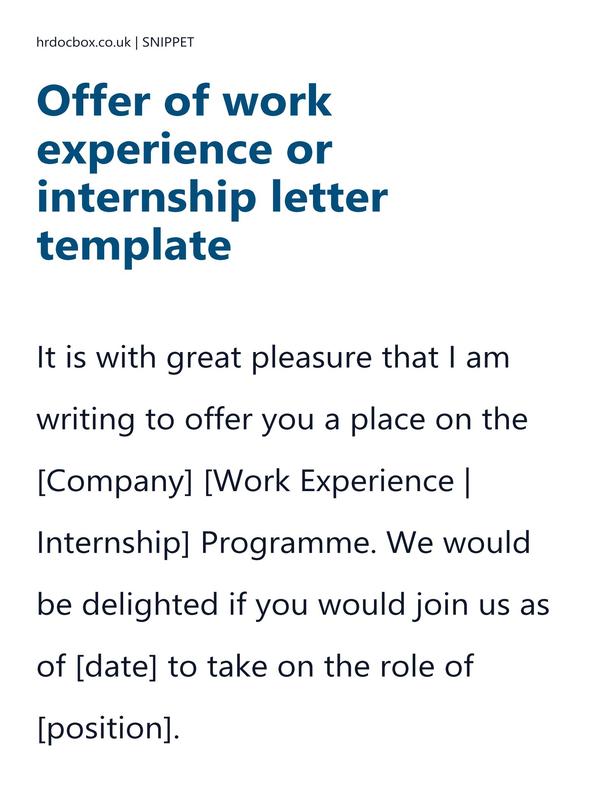
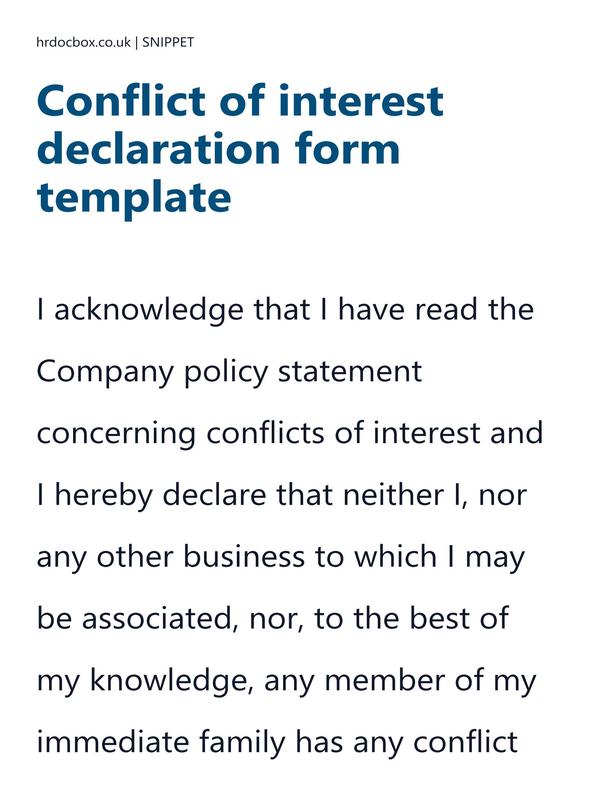
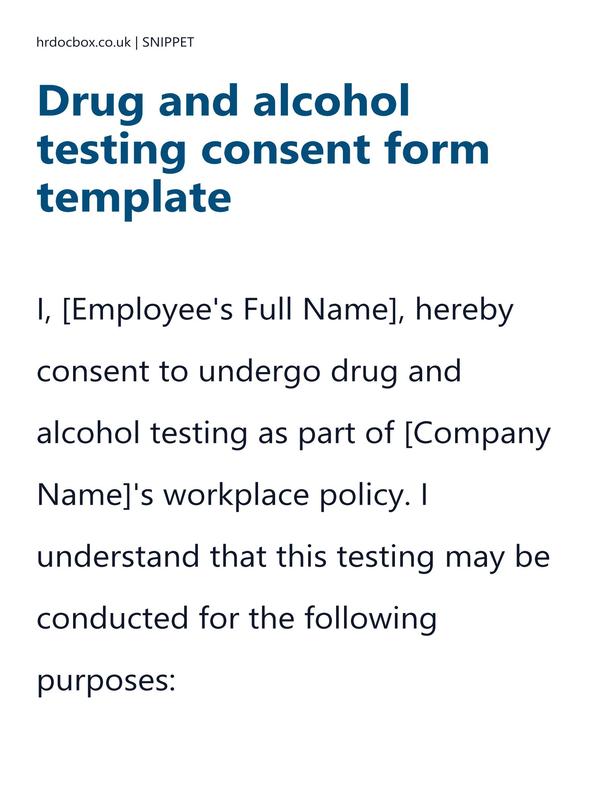
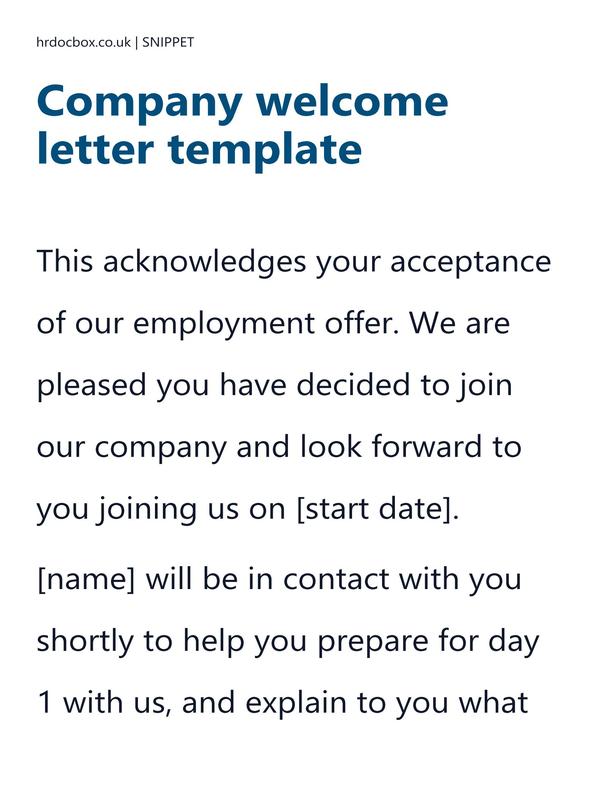
-letter-template-preview.jpg)
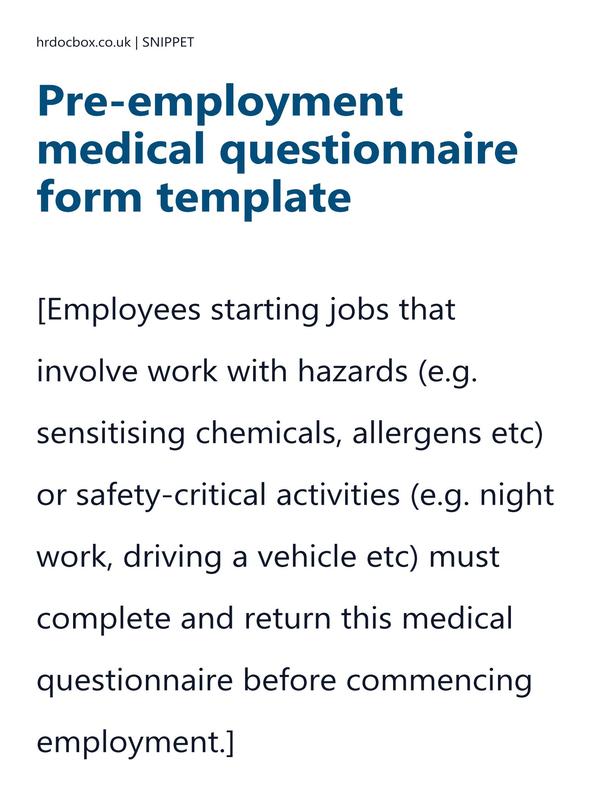
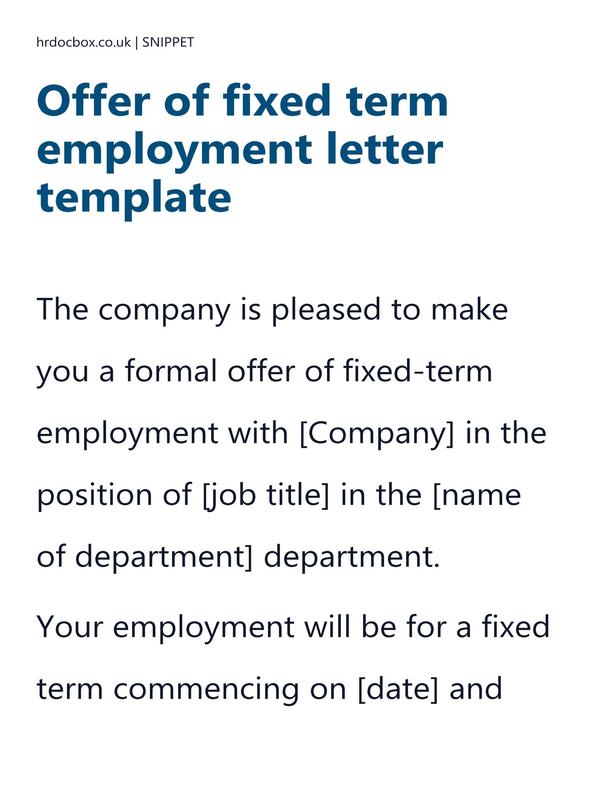
-letter-template-preview.jpg)
